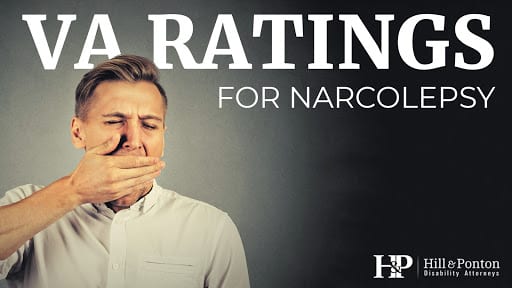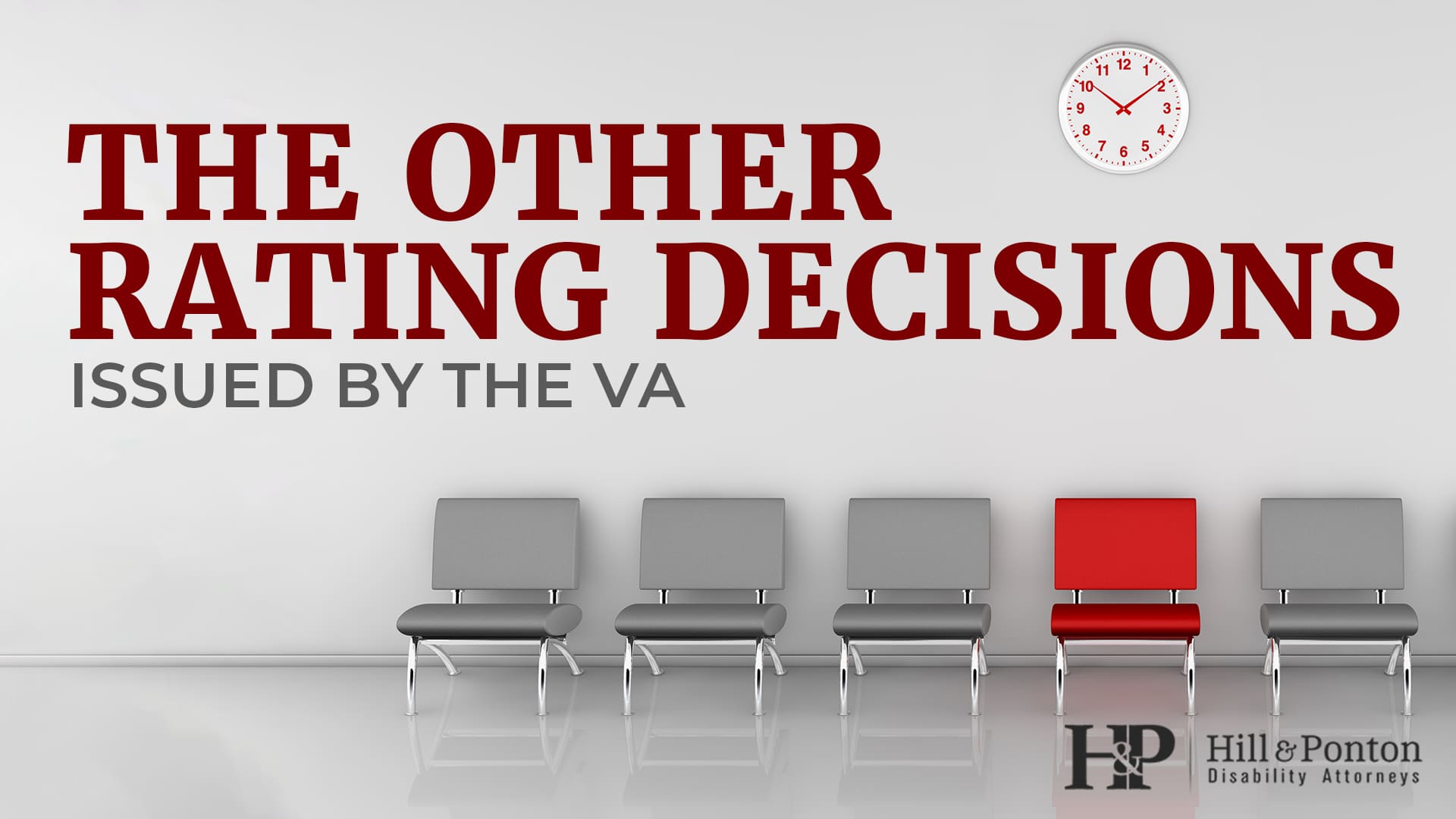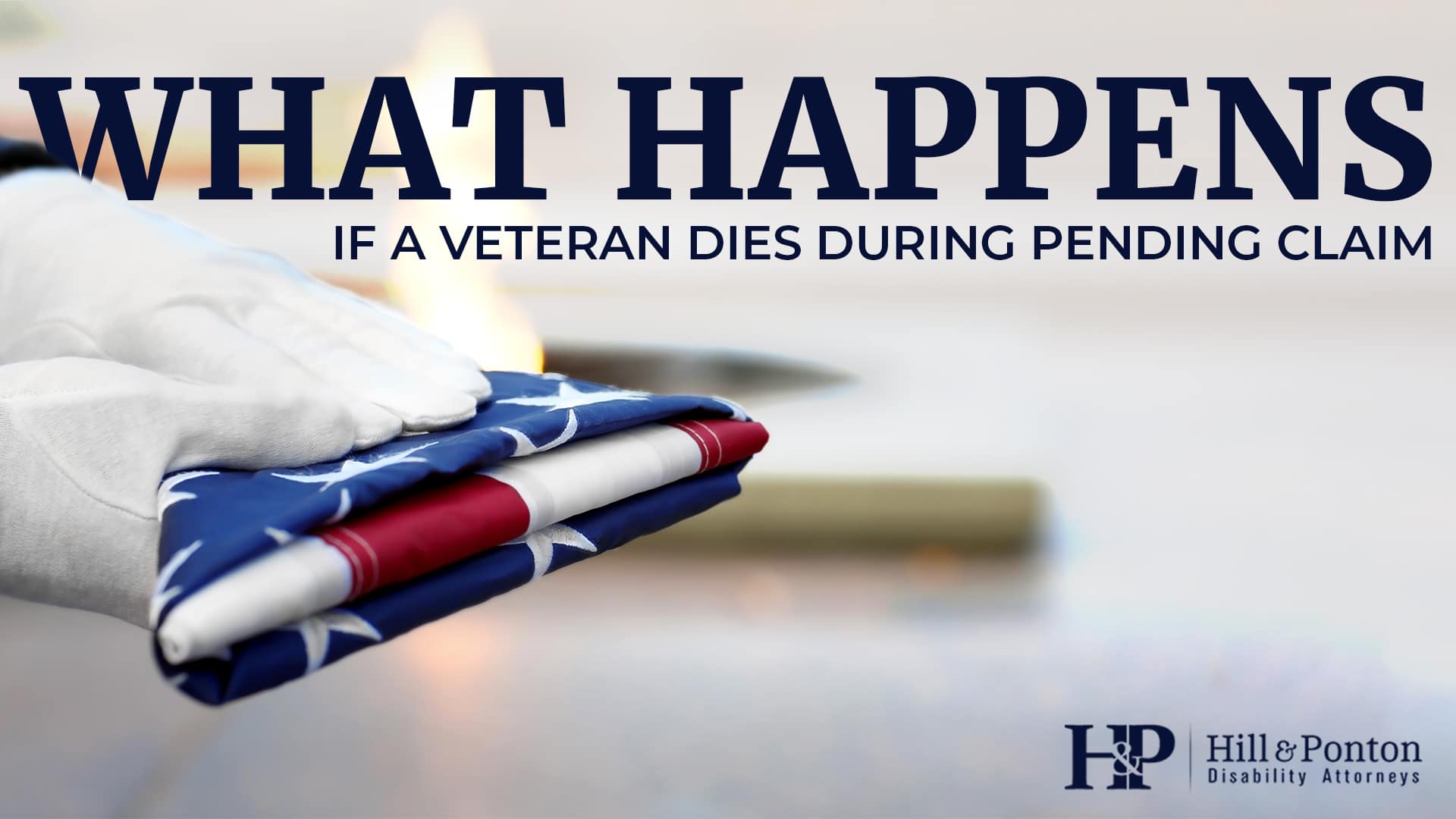Narcolepsy is a serious medical condition that can cause excessive daytime sleepiness, sleep problems, and other symptoms that can make daily life challenging. If your narcolepsy started due to or was aggravated by your military service in some way, you may be eligible for VA disability benefits.
This guide will explain the basics of narcolepsy, how to prove service connection, and what to expect from the disability claim process.
What Is the VA Rating For Narcolepsy?
The VA disability rating for narcolepsy ranges from 10% to 100% under diagnostic code 8911, depending on the frequency and severity of the symptoms. Because narcolepsy can cause severe disruptions to your work and endanger your safety and the safety of others, the VA may rate it at 80%.
In official reviews, the Board has likened narcolepsy to minor seizures, in that both will incapacitate a person for a given length of time.
You can file for all conditions caused by your time in the military and receive ratings attached to each one based on the appropriate diagnostic codes. After all of the evidence has been reviewed, you will receive one aggregated number from the VA. Your rating will be taken into account when determining compensation packages.
What Is Narcolepsy?
Narcolepsy is a sleep condition that is defined by sudden daytime sleepiness. There are two main types of narcolepsy, known as Type 1 and Type 2. While both types have overlapping symptoms, those with Type 1 will suffer from a physical collapse (known as cataplexy) often triggered by strong emotions, both positive and negative. Cataplexy is defined as the sudden loss of muscle tone, which can cause temporary paralysis for the length of the attack. Those who suffer from narcolepsy often find their daytime routines are severely disrupted.
Symptoms of narcolepsy include:
- Decreased alertness and focus throughout the day
- Uncontrollable urge to sleep/excessive drowsiness
- Weakness of muscles
- Inability to move during sleep or directly after waking (sleep paralysis)
- Higher frequency of dreams due to increased REM sleep
- Hallucinations while falling asleep or upon waking
Narcolepsy can sometimes be portrayed as a humorous condition, but it can lead to serious consequences. For example, some people might have narcoleptic sleep attacks while driving. This sleep disorder is sometimes confused with obstructive sleep apnea, a condition that causes the throat muscles to relax and contract while at rest. Those with sleep apnea will also present with excessive drowsiness, which can cause a misdiagnosis.
Medical professionals will diagnose narcolepsy based on evidence from a sleep study. The results of this study can be key medical evidence in a narcolepsy VA claim, so keep this in mind.
Service Connection for Narcolepsy
The exact cause of narcolepsy is unknown, though it’s clear that those who suffer have less hypocretin, a chemical in the brain that regulates your sleeping patterns. However, narcolepsy can be triggered by intense emotion, which can easily be tied back to your time in the service if you suffer from flashbacks. If you choose to file for disability through the VA for narcolepsy, you’ll need to have the following:
- A recent diagnosis from your doctor
- An official letter from your doctor that states your narcolepsy is tied to your time in the service
- A list and description of events that led to the narcolepsy
It’s not uncommon to see a number of psychiatric disorders alongside narcolepsy, such as depression or anxiety. If you experienced severe stress while in the service, there could be a domino effect in terms of the number of disorders that stem from the trauma.
As long as the incident occurred while you were serving with the military, you can file for an in-service occurrence. (If the events occurred while you were off-base, you can still claim disability as long as you were officially registered during that time.)
For instance, let’s say that you were on a night shift where you needed to keep a lookout for potential threats. You had time to sleep during the day, but you’re unable to adjust your sleeping schedule fully. After a while, you find that you nod off at unexpected times. You could argue that the narcolepsy was a byproduct of the night shift, and your doctor can help you understand how one event can trigger the other.
Secondary Service Connection for Narcolepsy
Narcolepsy may be brought on by both physical or emotional stress. If you had an injury or psychiatric disorder during your time in the service, then you can file for more than one condition. A secondary service connection is essentially a disorder that was directly caused by a primary condition that VA recognizes as service-connected.
So let’s say that you broke your leg after slipping and falling during a routine transit stop. The leg heals, but you still suffer from inflammation long after the cast comes off. Over time, chronic pain begins to build and interfere with the quality of the sleep and your levels of hypocretin. While the primary service connection would be the chronic pain from the injury, the secondary condition could be narcolepsy.
The disability rating system from the VA allows you to file for more than one condition, so long as the point of connection is clear. If you choose to file as a secondary condition, you’ll need to submit a diagnosis from your doctor, as well as an official medical explanation about how your narcolepsy is related to the primary event. You can obtain this explanation by talking to your doctor and thoroughly explaining the events.
Compensation & Pension (C&P) Exams for Narcolepsy
You’ll need to submit all information and official documentation through the VA Regional Office (RO). Officials will look over your paperwork and likely schedule a Compensation & Pension (C&P) exam. The purpose of this exam is not to treat your narcolepsy, but to have an outside doctor evaluate your condition.
A VA doctor at a C&P exam will ask questions, review the diagnosis of your doctor, and establish the full sequence of events that led to your disability. The VA doctor may consider other diagnoses, such as sleep apnea, or try to determine if there’s another underlying cause for your narcolepsy. Because so little is understood about the disease, it’s easy to make incorrect assumptions that can obscure the deeper issues that may cause narcolepsy.
From there, the doctor will write their findings and send them to the RO. If the VA doctor does not agree with your doctor and the RO denies the case, you have the right to appeal.
Evidence for Narcolepsy VA Disability Claims
The evidence for narcolepsy is largely based on the amount of hypocretin you have and your general sleeping patterns. You may need to visit a sleep lab to have your brain waves measured both when asleep and awake. You can also give more information based on how you function throughout the day. For example, maybe you’re making more mistakes in your everyday life due to your drowsiness or find yourself in situations but can’t remember how you got there. Your family members may be able to present lay evidence to further prove your daily challenges.
TDIU for Narcolepsy
Total Disability based on Individual Unemployability can be attained with narcolepsy because a person with severe symptoms cannot be trusted to perform a wide variety of jobs. The VA will consider how your narcolepsy impacts your capacity to work, and whether your time on the job will continue to aggravate your condition. They’ll also take into account any other related disorders when calculating your rating. Qualifying for TDIU will mean a compensation equivalent to a rating of 100%, which can be achieved if you can show that narcolepsy precludes you from your official responsibilities. In this case, you would receive more VA compensation for narcolepsy.
Have Questions About Your Veteran’s Claim?
If you have questions about your eligibility for VA disability benefits, or if the VA has denied your claim, the attorneys at Hill & Ponton are available to help. Contact us today for a free case evaluation.




